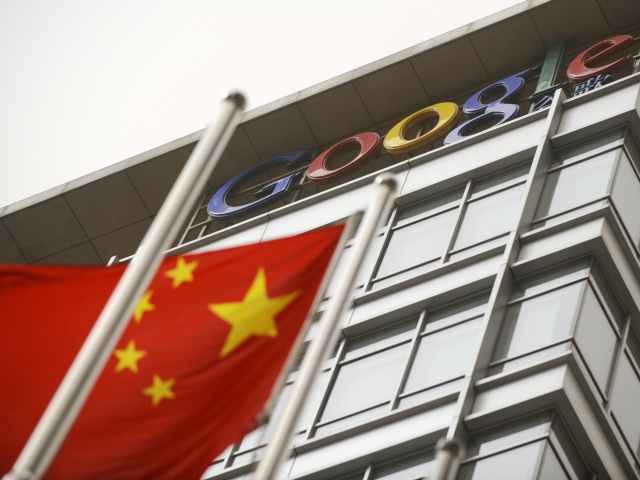Jack Poulson, a former senior research scientist at Google, sent a letter to the Senate Committee on Commerce, Science, and Transportation calling the company “unethical” and stating that oversight of the company is “urgently needed” after resigning from the Silicon Valley titan over its censored China search project.
In his letter, Poulson described Google’s censored China search project as “unethical” and claimed “greater oversight and accountability” of the company was “urgently needed.”
He also claimed Google would now be clamping down on internal investigations to stop future revelations of a similar nature from reaching the public, and called on the Senate to have a hearing over the matter.
“Senator Thune set the tone for the upcoming hearing by stating that ‘Consumers deserve clear answers and standards on data privacy protection.’ Given the scale and social impact of the technical systems being deployed by Google and other corporations, I would add that greater oversight and accountability of not only data, but also the systems that are designed and deployed based on such data, is urgently needed,” declared Poulson. “Until the beginning of this month, I worked in Google’s Research and Machine Intelligence division as a Senior Research Scientist, where one of my primary responsibilities was improving Google’s search accuracy across a wide variety of languages.”
Poulson continued:
I was compelled to resign my position on August 31, 2018, in the wake of a pattern of unethical and unaccountable decision making from company leadership. This culminated in their refusal to disclose information about Project Dragonfly, a version of Google Search tailored to the censorship and surveillance demands of the Chinese government. Like most of the world, including most Google employees, I learned about this effort on August 1, 2018, from public reporting.
It is notable that Project Dragonfly was well underway at the time the company released its AI Principles. As has been widely understood, by human rights organizations,investigative reporters, Google employees, and the public, Project Dragonfly directly contradicts the AI Principles’ commitment to not “design or deploy” any technology whose purpose “contravenes widely accepted principles of […] human rights”.
Some of the most disturbing components of Project Dragonfly, which I here directly verify, include:
- A prototype interface designed to allow a Chinese joint venture company to search for a given user’s search queries based on their phone number.
- An extensive censorship blacklist developed in accordance with Chinese govern-ment demands. Among others, it contained the English term ‘human rights’, the Mandarin terms for ‘student protest’ and ‘Nobel prize’, and very large numbers of phrases involving ‘Xi Jinping’ and other members of the CCP.
- Explicit code to ensure only Chinese government-approved air quality data would be returned in response to Chinese users’ search.
- A catastrophic failure of the internal privacy review process, which one of the reviewers characterized as actively subverted.
Each of these details was internally escalated by other employees to no avail, and many of them were discussed extensively on internal mailing lists; I understand that such discussion has since been increasingly stifled. I cannot speak for those who escalated these concerns, but I share their fear of the possible consequences.
I am part of a growing movement in the tech industry advocating for more transparency, oversight, and accountability for the systems we build. The primary goals are laidout in the Google Ethics Code Yellow Petition, which not only continues to circulate throughout Google but has also been endorsed by 14 human rights organizations and several technology experts.
I humbly ask that The Committee on Commerce, Science, and Transportation call on Google’s representative for the hearing, Mr. Keith Enright, to respond to the sincere and credible concerns of the coalition of 14 human rights organizations who drafted an August 28th Open Letter To Google. I also ask the committee to inquire about how Google is meeting its commitments to privacy under its own AI Principles and the Global Network Initiative, of which Google is a member.
Dragonfly is part of a broad pattern of unaccountable decision making across the tech industry. It has been made clear, both by word and by action, that the leadership at Google will be clamping down on the types of internal investigation that were necessary to bring Project Dragonfly to light. I would hope that The Committee would help protect the environment needed for future whistleblowers by taking steps to guarantee ethical transparency and oversight across Silicon Valley.
Poulson quit the company in August following reports of Google’s secret Chinese project, and in his resignation letter, Poulson claimed he was leaving to “avoid contributing to” the “erosion of protection for dissidents.”
Last month, over a dozen human rights organizations criticized Google’s project, describing it as “an alarming capitulation,” while it was reported that Google employees were concerned over the human rights consequences which the project could have.
Since the revelation of the project, Google has attempted to cover up related documents, and employees working on the project were ordered to “keep quiet” about it.
Charlie Nash is a reporter for Breitbart Tech. You can follow him on Twitter @MrNashington, or like his page at Facebook.

COMMENTS
Please let us know if you're having issues with commenting.